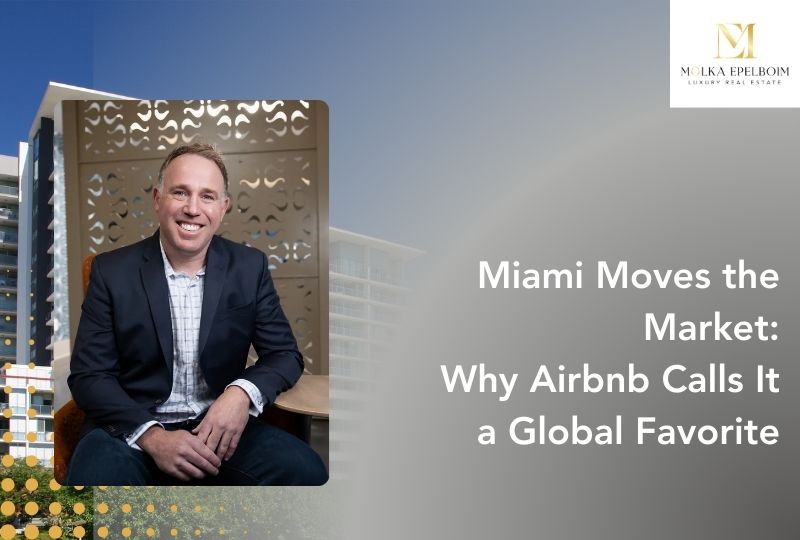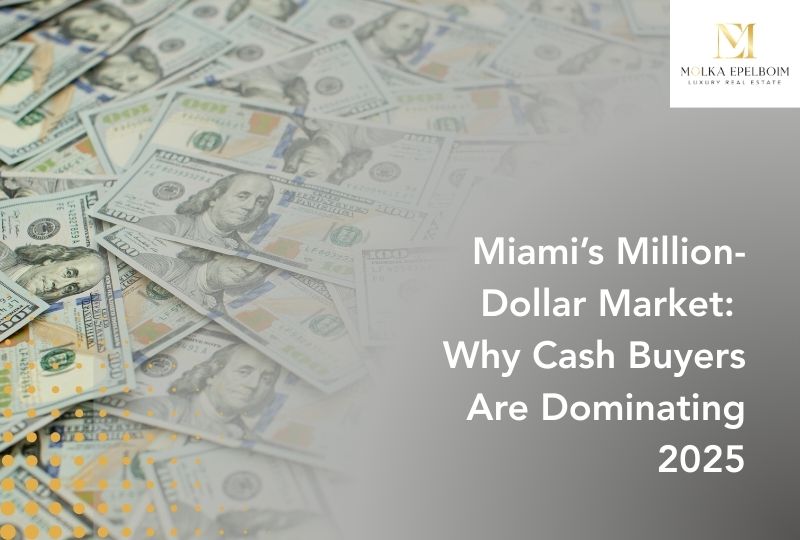
Miami has long been a magnet for sun-seekers, international investors, and luxury lifestyle enthusiasts. But in recent years, it has emerged as one of the most lucrative and dynamic markets for short-term rentals globally. According to Jesse Stein, Airbnb’s Global Head of Real Estate, “Miami is one of our top favorite markets in the world”—a bold statement backed by compelling data, favorable regulations, and unmatched demand.
This article explores why Miami is dominating the Airbnb investment landscape, supported by statistics, trends, and expert insights.
A Booming Short-Term Rental Ecosystem
Miami’s short-term rental market is not just thriving—it’s exploding. As of July 2025:
The average occupancy rate is a strong 69%, well above the national average of 50%.
The average daily rate (ADR) sits at $175, generating an annual revenue of $41,811 per listing.
This performance places Miami among the top-tier Airbnb cities globally, with February and December being the most profitable months due to seasonal demand.
Government Support and Regulatory Flexibility
Unlike cities such as New York, Barcelona, or Seoul—where short-term rentals face heavy restrictions—Miami has embraced Airbnb with open arms. Jesse Stein emphasized that “the love the mayor, the city and the local government has given us” is a key reason for Airbnb’s bullish stance on Miami.
Miami’s lenient regulations allow for:
Short-term rental flexibility in thousands of new condo units.
Airbnb-branded developments like 72 Park in North Beach, which offer turnkey rental solutions.
A legal framework that enables renters, landlords, and Airbnb to share revenue through subleasing programs.
This regulatory friendliness has made Miami a haven for developers and investors seeking scalable short-term rental opportunities.
Real Estate Appreciation and Equity Strength
Miami’s property values have surged over the past decade, making it a dual-threat market: strong for both appreciation and rental income.
Condo prices have increased 140.7% from February 2015 to February 2025—from $189,000 to $455,000.
Single-family home prices rose 167.3% in the same period—from $245,000 to $655,000.
This means investors not only earn from rental income but also benefit from long-term capital appreciation.
International Appeal and Buyer Diversity
Miami is a true gateway city, attracting buyers and renters from across the globe:
Nearly 50% of condo buyers in Miami are international, with a strong presence from Latin America.
24.17% of Airbnb guests in Miami are international travelers.
Miami-Dade ranks No. 1 in the U.S. for international migration, according to recent Census data.
This global demand ensures a steady stream of guests and buyers, even during economic downturns.
Inventory Growth and Developer Confidence
Developers are betting big on Miami’s short-term rental future:
Over 15,000 pre-construction units are being built with Airbnb flexibility in mind.
Projects like 72 Park and others are integrating Airbnb branding directly into their marketing and operations.
This surge in inventory reflects confidence in Miami’s sustained rental demand and regulatory stability.
Strong ROI and Revenue Potential
Miami’s Airbnb properties offer impressive returns:

The ROI score for Miami stands at 44 out of 100, which is considered fair but stable, especially given the city’s appreciation trends and occupancy rates.
Strategic Location and Lifestyle Magnetism
Miami offers more than just financial returns—it’s a lifestyle destination:
Ranked No. 6 in the U.S. for total housing value, with a market worth over $1 trillion.
Offers 60 square meters of prime property per $1M, compared to just 16 sqm in Monaco or 34 sqm in New York.
This combination of affordability (relative to global peers), luxury appeal, and lifestyle amenities makes Miami irresistible to investors and travelers alike.
Conclusion: Why Miami Is “Green Like Go”
Jesse Stein summed it up best: “L.A. is not going to be a huge opportunity in the short-term rental market. New York? No. Miami is green like go”.
With its regulatory support, international allure, robust revenue potential, and real estate appreciation, Miami stands out as a global leader in Airbnb investment. Whether you're a seasoned investor or a first-time buyer, Miami offers a rare blend of stability, profitability, and lifestyle that few markets can match.
Nestled between the vibrant cities of Miami and Fort Lauderdale, Gaia Residences at 401 N Federal Hwy, Hollywood, FL 33020 is redefining upscale living in South Florida. With its strategic location, cutting-edge design, and wellness-focused amenities, Gaia is not just a place to live—it's a lifestyle investment with immense potential for buyers and investors alike.Why Gaia Residences?Gaia Residences is an 18-story luxury condominium development featuring 238 units ranging from studios to spacious three-bedroom layouts. Prices start at $480,000 and go up to $1.1 million, with an average of $850 per square foot. The project is spearheaded by Alta Developers, with...
Miami’s real estate market has long been a magnet for the wealthy, the ambitious, and the global elite. But in recent years, one trend has stood out with striking clarity: cash reigns supreme. More than half of homes priced above $1 million in the Miami metro area are purchased in all-cash transactions—a phenomenon that’s reshaping the city’s housing dynamics and signaling deeper economic and cultural shifts.The Rise of All-Cash TransactionsAccording to data from Realtor.com, a staggering 53.5% of homes priced between $1 million and $5 million in Miami were bought with cash in the first half of 2025. That figure...
In the wake of the tragic collapse of Champlain Towers South in Surfside, Florida, in June 2021, which claimed 98 lives, the state has undergone one of the most significant condominium law reforms in its history. The changes, enacted through a series of legislative updates between 2022 and 2025, aim to enhance building safety, improve financial transparency, and ensure long-term sustainability for Florida’s vast condo market—home to over 3.3 million residents across 1.5 million units.While the reforms have introduced new responsibilities for condo associations and unit owners, they also reflect a broader effort to restore confidence in Florida’s aging condo...


